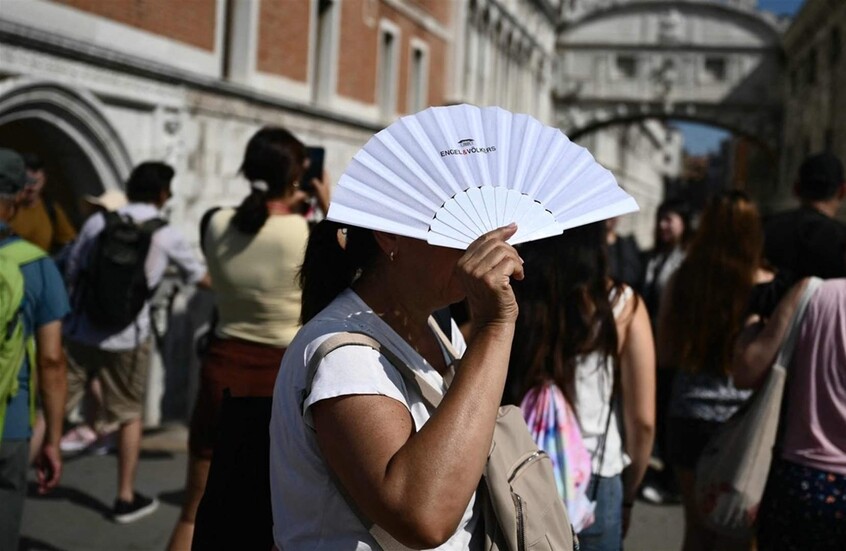Europe under the grip of a historic heatwave and continent-wide alert

European countries are preparing for the first summer heatwave where temperatures are expected to reach 42 degrees Celsius, as the continent, the fastest warming in the world, continues to face the consequences of climate emergencies.
The Spanish Meteorological Agency (Aemet) has issued a special warning about the historic heatwave, indicating expectations of temperatures rising to 42 degrees in some southern regions in the coming days, with a warning about the continued significant increase in temperatures day and night, posing a danger to vulnerable groups.
The Ministry of Health in Madrid has advised citizens to take additional precautions, urging them to avoid direct sun exposure, stay hydrated, and monitor the elderly, pregnant women, and patients with chronic diseases.
Portugal has placed two-thirds of its territory on extreme alert next Sunday due to the intense heat and the threat of forest fires, with temperatures expected to reach 42 degrees in the capital, Lisbon.
The French city of Marseille has decided to open public pools for free to help residents cope with the Mediterranean heat, as temperatures approach 40 degrees.
In contrast, Sicily in Italy has imposed a ban on working under the sun during peak hours in Palermo and Naples, while labor unions are calling for extending the measure to other areas.
Greece is witnessing massive forest fires south of Athens, with residents being evacuated and parts of the coastal road leading to the ancient Temple of Poseidon being closed, while temperatures reach around 40 degrees.
The European Union, through the Copernicus Climate Change Service, has recorded a series of record-breaking temperatures, including the hottest March in history.
Scientists warn of the increasing frequency and intensity of climate disasters such as hurricanes, droughts, floods, and heatwaves as global warming continues.
A study in the journal 'The Lancet' revealed the possibility of heat-related deaths in Europe tripling by the end of the century, especially in southern countries like Italy, Greece, and Spain, with annual deaths expected to reach 129,000 cases if the temperature rise exceeds 3 degrees.
Currently, heat-related deaths in Europe are 44,000 annually, while estimates suggest a potential increase in total cold and heat-related deaths from 407,000 to 450,000 by 2100 even if the goal of limiting global warming to 1.5 degrees is achieved.